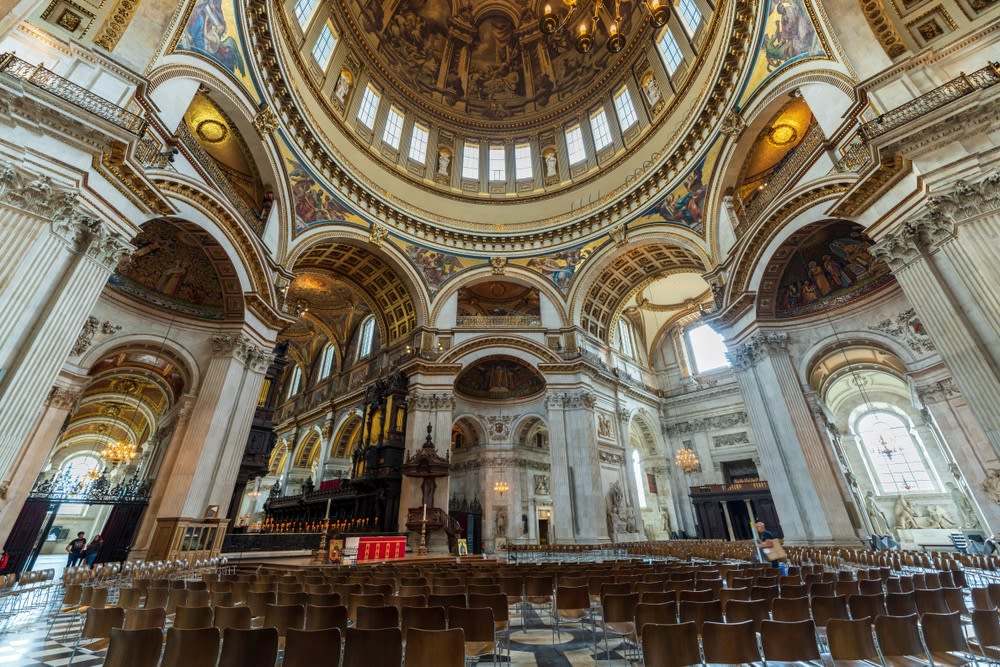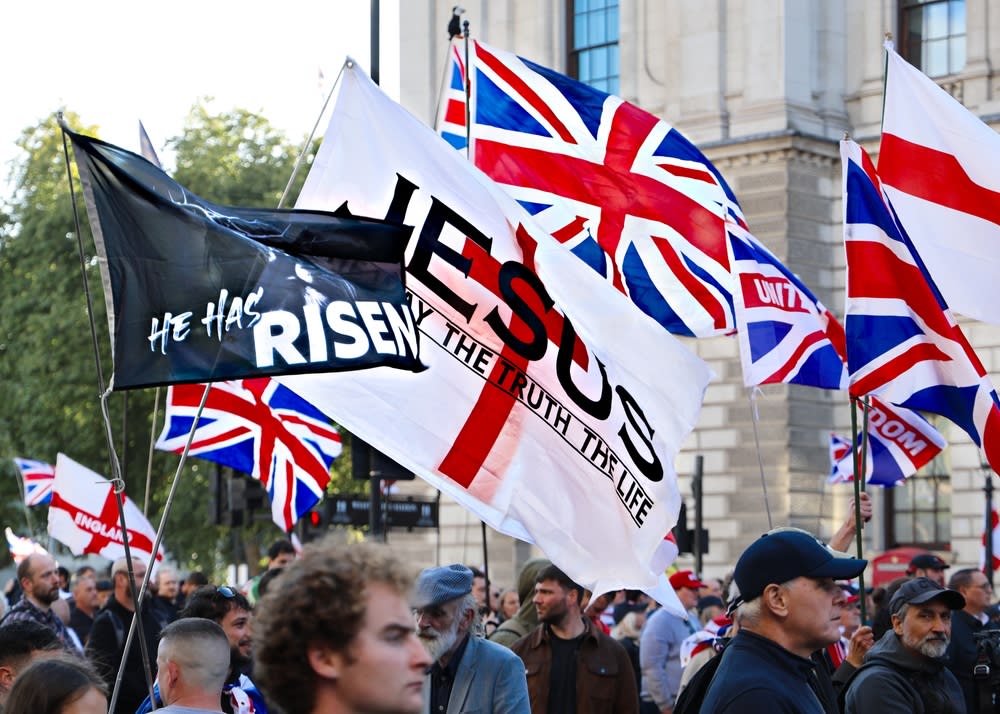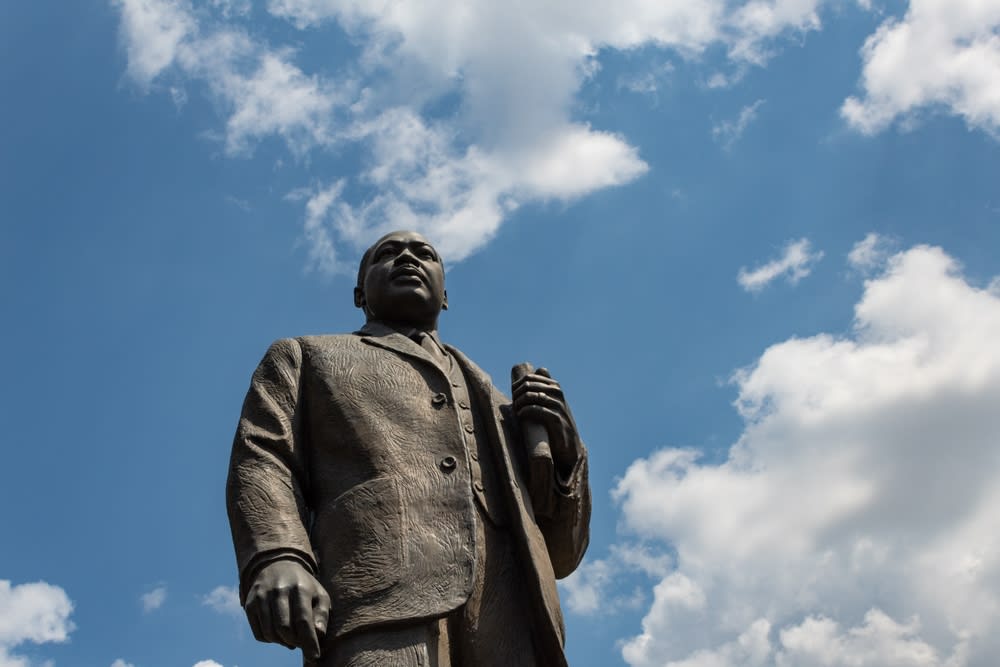|
 |
‘The populist shift in British politics, particularly around immigration, has coincided with a growing use of Christian language to legitimise exclusionary ideas… Let me be clear: a nationalist worldview is not a Christian worldview.’ - Ryan Rodrigues
What links MAGA, Reform UK, and Mother Teresa? If recent trends are anything to go by, the former two would want you to believe it’s Jesus Christ. Across both sides of the Atlantic, the language of faith is being co-opted by populist movements to sanctify nationalism.
I was ordained in the Church of England under the famous dome at St Paul’s Cathedral in July 2021 by the Bishop of London, Dame Sarah Mullally (soon to become the first ever female Archbishop of Canterbury). It was during the Covid-19 pandemic, and I was one of the youngest people in the country to be ordained.
Before ordination, I and the other candidates underwent a rigorous two-year discernment process involving interviews with church leaders and psychiatrists. Part of this was a three-day residential trip to decide who would be selected for training. During this residential, our every move, from dawn to dusk, was being closely watched and assessed. Think of it like The Traitors, but for vicars.
One requirement stood out: every candidate had to sign a declaration stating that we had never supported the British National Party. It was a powerful statement. I was not particularly political, but I could see a clear message being sent: the values of nationalism were not Christian values. I was proud to sign that form.
A worrying shift in British politics
In the years since, I’ve observed a marked shift away from that position in public life.
Unlike in America, where Christianity has long influenced politics, the UK has generally prized a functional separation between Church and State. Yet the populist shift in British politics, particularly around immigration, has coincided with a growing use of Christian language to legitimise exclusionary ideas. Some on the right are presenting their worldview as the true expression of the Christian faith.
At recent riots outside hotels housing asylum seekers, protesters held aloft a large wooden cross. At other far-right gatherings, Tommy Robinson was filmed chanting “Christ is King.” Nigel Farage, speaking at a Christian conference, invoked England’s “Judeo-Christian” values. Rishi Sunak was dubbed “not English” on account of his skin colour and religion by right-wing podcaster Constantin Kissin - “of course he’s not English, he’s a brown Hindu.”
Meanwhile, the flag of St George, the Christian saint who was himself an immigrant from what is now Turkey, has been revived as a symbol of division rather than unity. Christianity is being used as a dog-whistle to mean British and white, and it’s drifting into the mainstream.
When “Christian restoration” meets exclusion
In a recent podcast with the BBC’s Nick Robinson, former Conservative minister Danny Kruger MP, now defected to Reform UK, lamented the rise of what he called two religions “moving into the space of Christianity.” “One,” he said, “is Islam,” and the other, “doesn’t have a proper name, I don’t think ‘woke’ does it justice.” He went on to describe “woke” as a “Christian heresy” and claimed that the rise of Islam meant “a storm is coming.”
Kruger was once a centrist voice, an aide to David Cameron who even wrote the “hug a hoodie” speech. Yet last summer he used a Commons debate to call for a “Christian restoration,” declaring that “England is the oldest Christian country, and the prototype of nations across the West. The story of England is the story of Christianity operating on a people.”
This is an attempt to fuse Christianity with Englishness and use faith as a tool of nationalist identity politics. Let me be clear: a nationalist worldview is not a Christian worldview.
Biblical illiteracy and the vacuum of meaning
What worries me most is that this narrative of faith as division is going largely unchallenged.
The 2021 Census shows that, for the first time, Britain is a majority non-Christian country. One consequence has been a loss of basic biblical literacy, creating space for public figures to make sweeping claims in Christianity’s name; claims that too often go untested by journalists and politicians alike.
Some celebrate Christianity’s decline, assuming it’s incompatible with liberal, progressive values. Others, like Kruger, believe Christianity naturally belongs with conservatism. But history tells a different story.
Across the Atlantic, it took an ordained preacher, Martin Luther King Jr., to “dream” of a society where black and white were equal, drawing inspiration from the dreams of the biblical prophets. In Britain, William Wilberforce used Christian conviction to argue against slavery when the “enlightened” view was telling him otherwise. The Labour Party’s own co-founder, Keir Hardie, often spoke of his politics as rooted in “Christian socialism.”
Far from belonging solely to conservatism - the Church of England was once dubbed “the Conservative Party at prayer” - there is a radical, progressive tradition within Christianity that has shaped movements for justice across the world.
Christianity, instead of being exclusive to white Britons, is a global faith with over 2.5 billion followers speaking many languages across countless cultures, races and nations. In Britain today, our Black majority churches and migrant congregations embody that global Christianity in ways that enrich our common life.
Reclaiming faith for democracy and compassion
That’s why it’s especially troubling that a faith centred on a Middle Eastern Jew, born into poverty in modern-day Palestine and once a refugee in Africa, is now being weaponised by elements of the far right. When faith is conflated with national identity, to dissent is to be a heretic, and democracy itself weakens.
Throughout history, Christian values have driven some of humanity’s most significant moral advances. They have inspired people to stand up for the oppressed and challenge those who abuse their power. In a time of polarisation, we need to recapture that message of hope and peace, and remind ourselves that faith, at its best, calls us to widen our circles of belonging, not narrow them. If we allow Christian nationalism to go unchallenged, we risk surrendering one of our oldest moral languages to the politics of division. It’s time we reclaimed it for justice, compassion, and democracy.
Ryan is a priest from Mitcham in South London, where he now serves. He was ordained at St.Paul’s Cathedral in 2021 and holds a Masters in Theology from the University of Cambridge.


